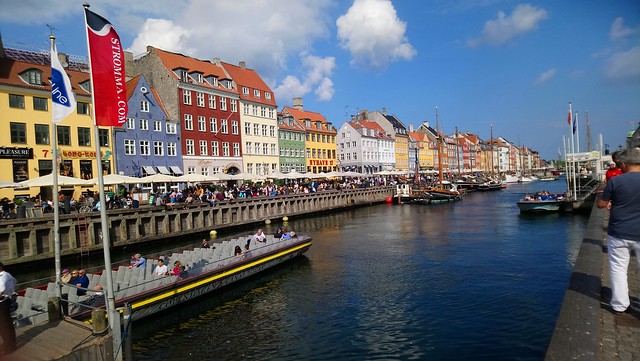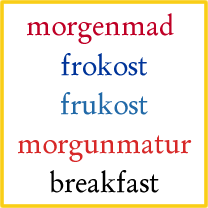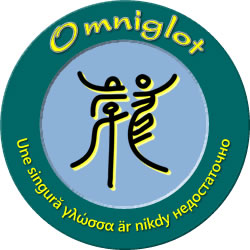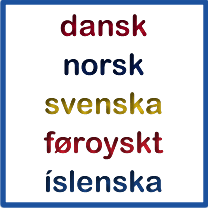Today I am in Copenhagen on the way to see a friend in Aarhus. I left Bangor at way-too-early o’clock this morning, and arrived in Copenhagen early this afternoon. I’m staying in an AirBnB in Sydhavn, not far from the centre of the city. One of my hosts is from Moldova, and the other is a Dane, who I haven’t met yet. I spoke a bit of Russian and Romanian with my Moldovan host, which she seemed pleased to hear.
This afternoon I explored the touristy part of Copenhagen, and saw some nice parks, a castle, lots of boats, including a tall ship, a little mermaid, and some interesting buildings. I heard quite a few different languages being spoken, including Dutch, Spanish, Italian, Portuguese, Mandarin, Cantonese and other flavours of Chinese, English, French and even a bit of Danish. My knowledge of Danish is limited – I can read Danish quite well, and speak and understand it a little.
Cycling seems to be a popular way to get around here, perhaps because Copenhagen is so flat. There are plenty of cycle paths, and even traffic lights for cyclists. There are also many cargo bikes – three-wheeled contraptions with a large container on the front for shopping, children, pets or other things. Some cyclists indicate they’re stopping by raising their arm, as if asking a question, which is practical, but looks quite funny to me.
Here are a few photos:
Tomorrow I’m off to Aarhus to see a Czech friend who teaches Linguistics at the university there. We usually speak a mixture of Czech, English and Welsh, and now we can add some Danish to the mix.
Later addition – I’ve met both my hosts now – the guy is actually from the Faroe Islands, and we’ve just had a very interesting conversation about Faroese and other languages. He told me that they used to borrow a lot of words into Faroese, especially from Danish, but now tend to create new words from Faroese roots. He finds it hard to understand some of the new words, as he’s not used to using them. They speak English to each other, by the way, as he doesn’t speak Russian or Romanian, and she speaks only a little Danish, and no Faroese.




